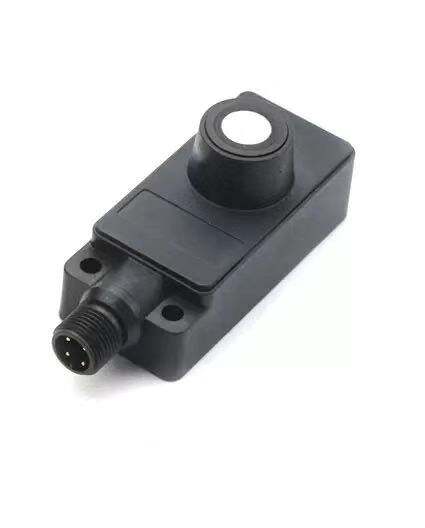Introduction
While it's less glamorous than other types of modern technology, sensors are at near the top of the list of unsung heroes doing a lot of work in lots different areas from environmental monitoring to advanced automotive systems. As there is a growing requirement for accurate and trustworthy data, selecting the proper sensor for your individual application becomes more crucial. In this blog post, you will learn about the factors that come into play when purchasing a sensor and how to choose the most suitable sensor for your application.
Types of Sensors
Different types of sensors are available to sense different parameters. They can be of many types like temperature sensors, pressure sensor motion, light sensors and so on. Key sensors in smart factory Applications Understanding the type of sensor that work best with your application, is mandatory. Thus, in industrial processes a temperature sensor is more useful than motion sensors like those found in security systems or gaming interfaces.
Accuracy and Precision
Sensor performance relies on accuracy and precision. Accuracy — How a Sensor reading is close to the true value, Precision — When measurements taken again will obtain nearly identical result. The most fundamental process requirement is a selection of the sensor and its specifications, matched to the key figures needed by your application. High accuracy and precision are a must in highly impact applications where even the fine margined deviations would result to huge impacts.
Sensitivity and Range
A sensor must be able to detect changes over a certain range, and the sensor sensitivity and range affect how well it will perform. The sensitivity is an indication of how finely a sensor can register small changes; the range sets the boundaries within which this response takes place. When measuring needs to be accurate within some bounds, correctly choosing sensitivity and range of the sensor becomes an important part.
Response Time
Response time is the ability of a sensor to respond to changes in the measured variable. In real-time, monitoring and control systems require fast response times as they need to optimize in a matter of microseconds. Sensor response time can be impacted by factors including sensor design, materials and environmental conditions, making it an important thing to consider when choosing a sensor.
Environmental Considerations
The usage of sensor is significantly affected by the operating temperature, humidity and pressure. Selection of any sensor fuel will depend on the particular environmental conditions. Many sensors have protection ratings (often denoted as IP ratings) that indicate how well the sensor holds up to dust, water, and other factors.
Power Requirements
Sensors come in all shapes & sizes, from battery-operated to hardline-connectors requiring a 24/7 power connection. You should concentrate on how much power your system is consuming and what implications it has for the energy efficiency of your server. When the progress is in a remote locale or some place difficult to reach, lower power sensors that have long battery life may be all the more fitting.
Communication Protocols
Data transmission from the sensors is through different types of communication protocols like I2C, SPI, UART or wireless protocols (Bluetooth/Wi-Fi). It is important to ensure that the sensor communication protocol can be compatible with existing systems. Selecting a sensor that is capable of the relevant protocol can help make the integration easier and faster to develop.
Cost & Budget Related Factors
Sensors are available in a wide range of costs that deal with features, accuracy and materials used. Image quality must be traded off against budget. While you might want to pay a little more up front for the camera, investing in a high-quality sensor may help save costs in the long run with less maintenance and higher reliability.
Reliability and Manufacturer Support
Opting for sensors from world-renowned manufacturers can assure quality and reliability. The company reputation can be determined by reviews, warranty options and customer support from the manufacturer. With a good manufacturer, you also get the corresponding technical support and assistance that lasts the entire lifecycle of your sensor.
Future-Proofing Your Purchase
Sensors are often subject to technology changes, whether in the software or the actual sensor itself. Such as, the possibility of running this sensor over different new method or compatibility with the upcoming future systems. If you wish to save money, invest in sensors that are upgradable or work with new standards.
Conclusion
Some of the factors to think about when purchasing a sensor include: type, accuracy, sensitivity, response time, environmental conditions, power requirements, communication protocols and more. Homework and evaluation must definitely be done before selecting a sensor in order to ensure that the sensor meets the needs of your application — reliably.

